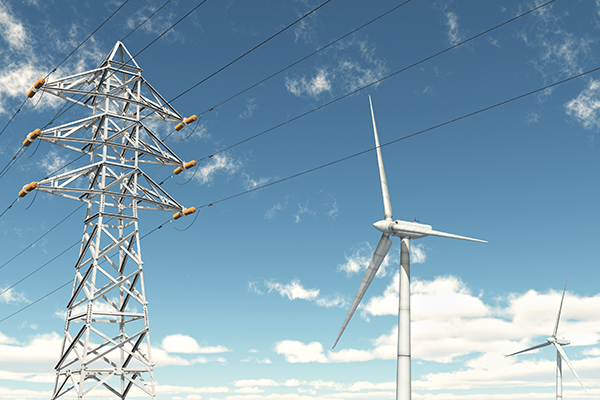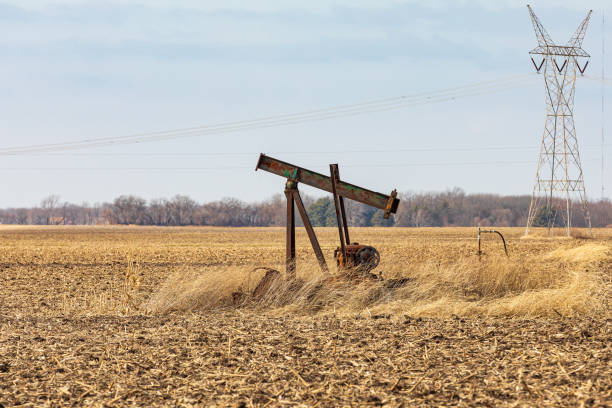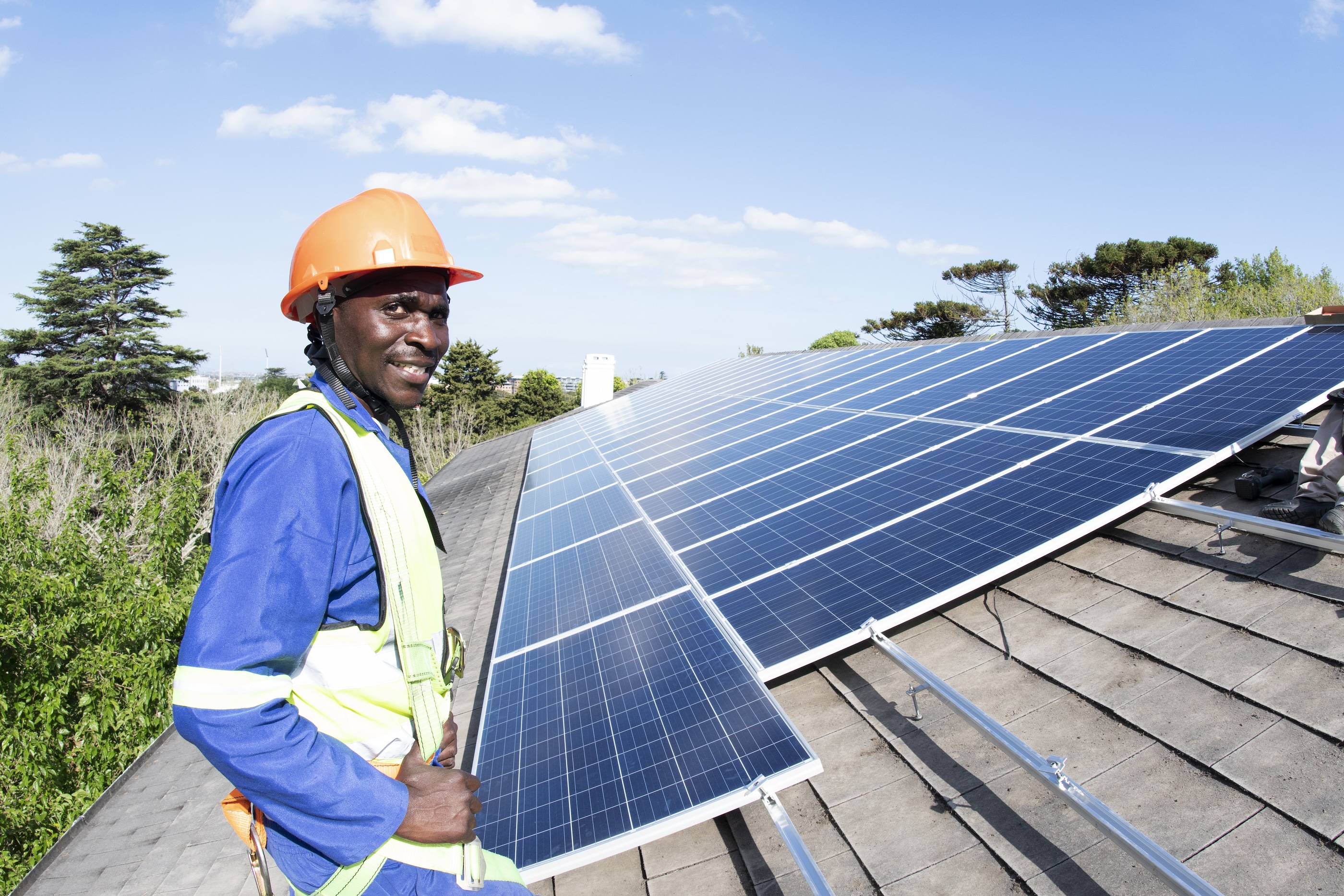Economics Discussion Paper Series
EDF’s Economics Discussion Paper Series presents economic works, research in progress, and policy discussions written by EDF Economists and external colleagues and co-authors.

Process and Policy Insights from an Intercomparison of Open Electricity System Capacity Expansion Models
This study compares four widely-used open-source electricity capacity expansion models (Temoa, Switch, GenX, and USENSYS) under harmonized inputs and configurations. Using PowerGenome to standardize inputs across models, we evaluate how closely these models align when configured identically and how varying model configurations affect outputs and policy insights. Our findings reveal remarkably consistent results across all models when properly harmonized, with differences in system costs below 1% in most scenarios. The research demonstrates that while model structure differences exist, configuration choices (such as including unit commitment constraints or economic retirement options) have a more significant impact on investment decisions and cost projections than the choice of modeling platform itself. This work establishes a framework for transparent model comparison and highlights the importance of clear scenario definition and configuration transparency when using these tools to inform energy transition policies.
Authors: Greg Schivley, Aurora Barone, Michael Blackhurst, Patricia Hidalgo-Gonzalez, Jesse Jenkins, Oleg Lugovoy, Qian Luo, Michael Roberts, Rangrang Zheng, Cameron Wade, and Matthias Fripp

Louisiana's Inactive Wells: Steps Toward Improved Management
This paper examines Louisiana's nearly 20,000 “future utility” wells — inactive oil and gas wells with potential future value. Weak historical oversight has allowed some uneconomic wells to remain unplugged indefinitely, posing significant financial, health, and environmental risks. We find that there has been a rise in the number of future utility wells since 2016, and that the majority of these wells have been in future utility status for over five years. Historic trends suggest that wells that have been in future utility status for this long are unlikely to produce again. We further estimate that rules introduced in 2023 to incentivize well plugging could create thousands of Louisiana jobs and revenue to plug hundreds of orphaned wells.
Authors: Aaron Wolfe, Margaret Coleman, Maureen Lackner, Adam Peltz, and Lauren Beatty

Advancing Effective and Equitable Crediting: The Natural Climate Solutions Crediting Handbook
This first-of-its-kind handbook supports stakeholders seeking a foundational understanding of natural climate solutions crediting, empowering them to constructively navigate complex discussions and key decisions. Topics include the role of NCS in global climate mitigation, NCS credit integrity from supplier and buyer perspectives, NCS in domestic and global markets, and related finance and contract design topics. Each chapter also points readers to further reading on key topics.
Authors: John Ward, Christine Gerbode, Britta Johnston, and Suzi Kerr

Advancing Effective and Equitable Crediting for Natural Climate Solutions: An Introduction
This brief introduces basic terms and concepts for understanding crediting of Natural Climate Solutions (NCS). It lays out the value of successfully scaling up NCS crediting to achieve global climate goals, and provides an overview of central challenges, misconceptions, and complexities in this evolving space. The document lays a foundation to empower readers to engage in constructive discussion of solutions to nuanced NCS crediting issues.
Authors: Devyani Singh, Britta Johnston, Christine Gerbode, Suzi Kerr, Julia Paltseva, Doria R. Gordon, Eric Holst, Kristin Kleisner, Gökçe Akin-Olçum, and Jason Funk

Taking Stock of Methane Policies Across the LNG Supply Chain: What is the Role of LNG Importers and Exporters in Pursuing Further Emission Reductions?
This paper aims to address three questions: 1) How do the major LNG importing and exporting countries and companies see the role of gas and methane mitigation in short- (2030) and long-term (2050-2070) perspectives, 2) What are the main policies targeting methane emissions across LNG supply chain(s)?, and 3) What are the main policy-related barriers and opportunities for achieving methane emissions reductions?
Author: Maria Olczak

A Global and Inclusive Just Labor Transition: Challenges and Opportunities in Developing and Developed Countries
This research explores the challenges and opportunities for an inclusive just labor transition (JLT) to a low-carbon economy. We compare JLT policies in developed and developing countries, focusing on job quality, displaced worker compensation, and government intervention. Additionally, we highlight opportunities for job creation, retraining, and community integration. Finally, we introduce a Just Labor Transition Progress Scale to evaluate countries' progress, providing insights for researchers and policymakers.
Authors: Brigitte Castañeda, Luis Fernández Intriago, Raphael Heffron, Minwoo Hyun
![[insert description] [insert description]](/sites/default/files/2024-01/Agriculture-field-600x400.png)
Design Concerns for Agricultural Soil Carbon Markets: An Economic Research Agenda
The market for agricultural soil carbon credits has grown exponentially in recent years, opening up a new set of opportunities and risks in the fight against climate change. However, both scientific and economic research is urgently needed to develop an underlying basis for these credits. This paper offers an economic framework to help researchers and policymakers understand the challenges involved in establishing an agricultural greenhouse gases (GHG) market that achieves environmental goals and creates large-scale change.
Author: Kelsey Larson
![[insert description] [insert description]](/sites/default/files/2023-11/Coal-water-plant-600x400.png)
Policy Options for Addressing Methane Emissions from the Coal Sector
Methane is a potent but short-lived greenhouse gas (GHG), in which reduction is necessary to keep the achievement of the Paris Agreement objectives within reach. The extraction, transport and consumption of coal is a major source of CO2 and the fourth-largest source of anthropogenic methane emissions after livestock, rice production and the oil and gas supply chains. At the same time, coal remains the world's second source of primary energy and is a core input in strategic industries such as iron and steel production.
Author: Maria Olczak
![[insert description] [insert description]](https://www.edf.org/sites/default/files/2023-08/Our_work-Mobile-DJI_0159-Edited.jpg)
Advancing Effective and Equitable Crediting for Natural Climate Solutions: Equity Considerations on the Demand Side of NCS Crediting
Significant equity considerations arise around both the generation and use of emissions reductions associated with Natural Climate Solutions (NCS) carbon credits. This paper focuses on the demand side, referring to the use of carbon credits generated through NCS for compliance with regulatory obligations or to meet voluntary commitments.
Authors: Julia Ilhardt, Nina Randazzo, Fern Uennatornwaranggoon and Devyani Singh

Advancing Effective and Equitable Crediting for Natural Climate Solutions: Mitigating Credit Transaction Risk Through Contract Design
Natural Climate Solutions (NCS) have the potential to provide one-third of the climate mitigation needed to limit global warming to well below 2 degrees. But to achieve this goal, investments in NCS need to rapidly scale up, including private sector investments. Private actors seeking to engage in NCS credit transactions will encounter a variety of risks related to market dynamics and market perceptions.
Authors: Alexander Golub, Clayton Munnings, Alicia Robinson, Julia Ilhardt, Devyani Singh, Suzi Kerr and Christine Gerbode
![[insert description] [insert description]](https://www.edf.org/sites/default/files/2023-06/Windmills.jpg)
Greenhouse Gas Mitigation Beyond the Nationally Determined Contributions in Chile: An Assessment of Alternatives
In support of the Climate Action Teams initiative, we evaluate Chile's potential for greenhouse gas (GHG) mitigation beyond its Nationally Determined Contributions (NDCs) through implementing ambitious actions. An open multisector model is used to project GHG emissions. The results indicate that additional efforts are required to meet Chile's NDC commitments.
Authors: José Miguel Valdes, Álvaro Lorca, Cristian Salas, Francisco Pinto, Rocío Herrera, Alejandro Bañados, Raúl Urtubia, Patricio Castillo, Lucas Maulén and Diego González.
![[insert description] [insert description]](https://www.edf.org/sites/default/files/2023-03/Flooding.jpg)
Improving Household and Community Disaster Recovery: Evidence on the Role of Insurance
We study the role of insurance in improving household and community disaster recovery. Harnessing unique survey data of residents impacted by four land-falling hurricanes in the U.S., we find that insured households are less likely to experience high financial burdens in both the short and longer-run post-disaster and are less likely to have unmet funding needs. Insurance also provides spillover benefits for the local economy.
Authors: Xuesong You and Carolyn Kousky.
![[insert description] [insert description]](https://www.edf.org/sites/default/files/2022-10/Chile_Scenary.jpg)
Potential Greenhouse Gas Reductions Beyond Chile's Nationally Determined Contribution to 2030: Preliminary Modelling Results
A prospective emissions open-access model was developed by a modeling team from the Global Change Center of the Pontifical Catholic University of Chile to explore mitigation opportunities beyond Chile’s NDC. This paper shares the results, which represent a first approximation of the mitigation potential and its costs.
Authors: Andrés Pica-Téllez, Álvaro Lorca, Raúl Urtubia, Luis Abdon Cifuentes, José Miguel Valdes. Viviana Cerda-Gho, Catalina Veloso, Diego González, Horacio Gilabert, Francisco Meza, Francisco Pinto, Valentina Jara, Catalina Marinkovic-De la Cruz, Sebastián Vicuña, Juan Pablo Montero.
![[insert description] [insert description]](https://www.edf.org/sites/default/files/2022-10/Oil_Rig.jpg)
Policy Instrument Options for Addressing Methane Emissions from the Oil and Gas Sector
This paper outlines different policy instrument options for both oil and gas producing as well as –importing countries and is intended as a descriptive guide for those interested in exploring different public policy instruments and how they can be designed to address methane emissions from the oil and gas sector.
Authors: Kristina Mohlin, Maureen Lackner, Huong Nguyen, Aaron Wolfe.
![[insert description] [insert description]](https://www.edf.org/sites/default/files/2021-12/Forest_Protection_Paper_Image_600x400.jpg)
Forest Protection and Permanence of Reduced Emissions
This research models the application of different policy pathways to slow down and stop deforestation, and finds that REDD+ works as an initial intervention to help shift tropical nations towards a zero-deforestation trajectory.
Authors: Margaret McCallister, Andrey Krasovskiy, Anton Platov, Alexander Golub, Breno Pietracci, and Gabriela Leslie.
![[insert description] [insert description]](https://www.edf.org/sites/default/files/2021-12/Electricity_Tariffs_Paper_image_600x400.jpg)
Cost-Reflective Residential Electricity Tariff Design: Synthesis of research findings on the impacts on customer bills, adoption of distributed energy resources and pollution
This synthesis paper summarizes the findings from a research project on the impacts of residential electricity tariff design on adoption of distributed energy resources (DERs), pollution and customer bills.
Authors: Kristina Mohlin, Beia Spiller, Karen Tapia-Ahumada and Burcin Unel.
![[insert description] [insert description]](https://www.edf.org/sites/default/files/2021-09/Agricultural%20Climate%20Change%20Adaptation-600x400.jpg)
Agricultural Climate Change Adaptation: A Review of Recent Approaches
This report reviews two recent approaches to studying climate change adaptation in agriculture: panel data methods and spatial general equilibrium models.
Author: Tara Sullivan.
![[insert description] [insert description]](https://www.edf.org/sites/default/files/2021-09/us-gas-pipeline-transportation-market-600x400.jpg)
The U.S. Gas Pipeline Transportation Market
This paper outlines the regulations and main features of the U.S. gas transportation market to facilitate analyses of how to improve the design and regulation of this market for the energy transition.
Author: Kristina Mohlin.
![[insert description] [insert description]](https://www.edf.org/sites/default/files/2021-09/pricing-methane-emissions-600x400.jpg)
Pricing Methane Emissions from Oil and Gas Production
This brief assesses how a price on methane from oil and gas production could complement existing regulations and incentivize companies to further increase their mitigation and monitoring efforts to achieve methane emission reductions.
Authors: Maureen Lackner, Jonathan R. Camuzeaux, Suzi Kerr and Kristina Mohlin.
![[insert description] [insert description]](https://www.edf.org/sites/default/files/2021-09/plasticTrashpile-600x400.jpg)
The Plastic Economy
This report reviews the literature on the impacts of plastic, explores environmentally-friendly plastic alternatives, and examines plastic regulations and discusses evidence of their efficacy at reducing plastic use and pollution.
Authors: Lihini De Silva, Jacqueline Doremus and Rebecca L. C. Taylor.
![[insert description] [insert description]](https://www.edf.org/sites/default/files/2021-09/health-benefits-of-solar-power-generation-600x400.jpg)
The Health Benefits of Solar Power Generation
This paper estimates the impact of solar energy deployment on health outcomes in Chile, identifying some of the important co-benefits of renewable energy investments in developing countries.
Authors: Nathaly Rivera, Cristobal Ruiz-Tagle, and Beia Spiller.
![[insert description] [insert description]](https://www.edf.org/sites/default/files/2021-09/water-management-in-the-western-us-600x400.jpg)
Water Management in the Western U.S.
This report discusses water management in the western U.S. and investigates related problems. Topics include fragmented water management, groundwater market design, and agricultural adaptation to reduced water supplies.
Author: Shanchao Wang.
![[insert description] [insert description]](https://www.edf.org/sites/default/files/2021-09/role-of-electricity-tariff-design-600x400.jpg)
The Role of Electricity Tariff Design in Distributed Energy Resource Deployment
This work simulates the effect of electricity tariffs on household adoption of distributed energy resources (DERs), providing insights into tariff design and the role of DERs in a future decarbonized electricity system.
Authors: Beia Spiller, Ricardo Esparza, Kristina Mohlin, Karen Tapia-Ahumada and Burcin Unel.
![[insert description] [insert description]](https://www.edf.org/sites/default/files/2021-09/agricultural-offset-potential-600x400.jpg)
Agricultural Offset Potential in the United States
This article describes efforts undertaken by EDF over the past decade to design and implement agricultural GHG offset credit markets for several crops and geographies.
Authors: Jeremy Proville, Robert Parkhurst, Steven Koller, Sara Kroopf, Justin S. Baker and William A. Salas.
![[insert description] [insert description]](https://www.edf.org/sites/default/files/2021-09/wholesale-electricity-market-design-600x400.jpg)
Wholesale Electricity Market Design for Decarbonization
This paper presents an overview of the most salient challenges involved with decarbonizing electricity markets through wholesale market design, identifying areas where economic research can advance this crucial policy goal.
Author: Christopher Holt.











